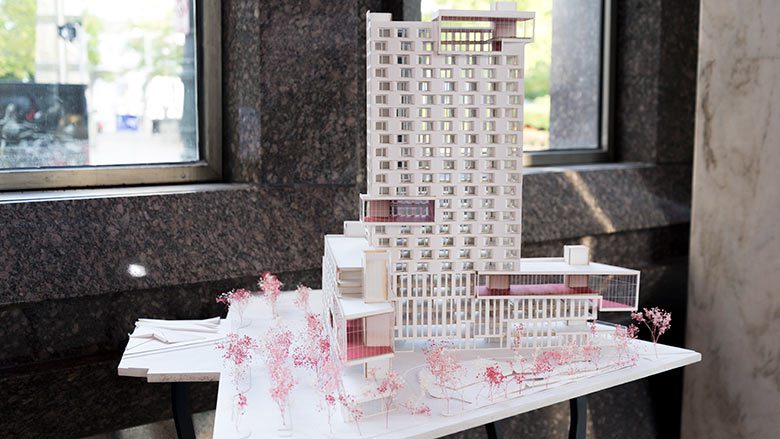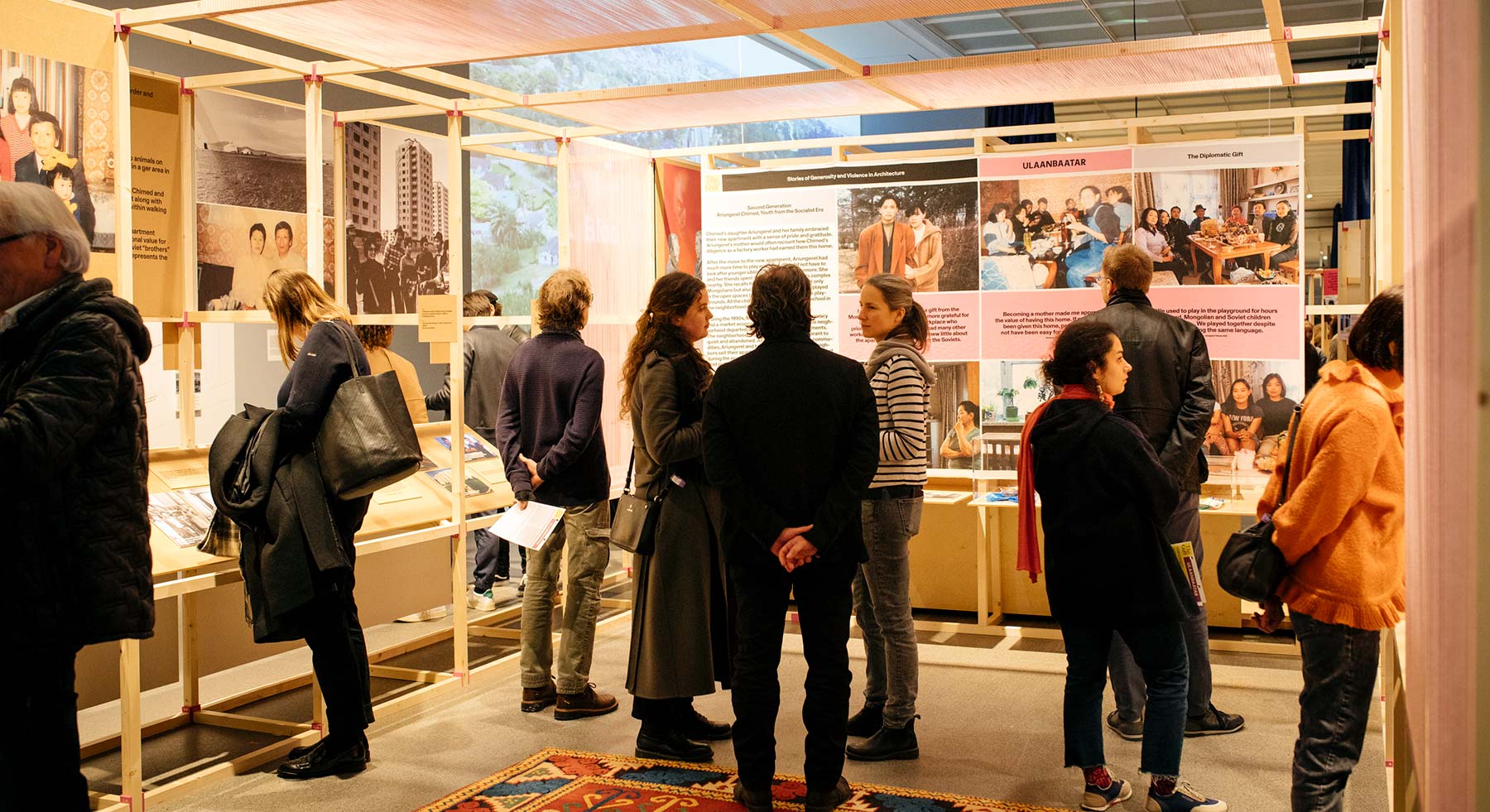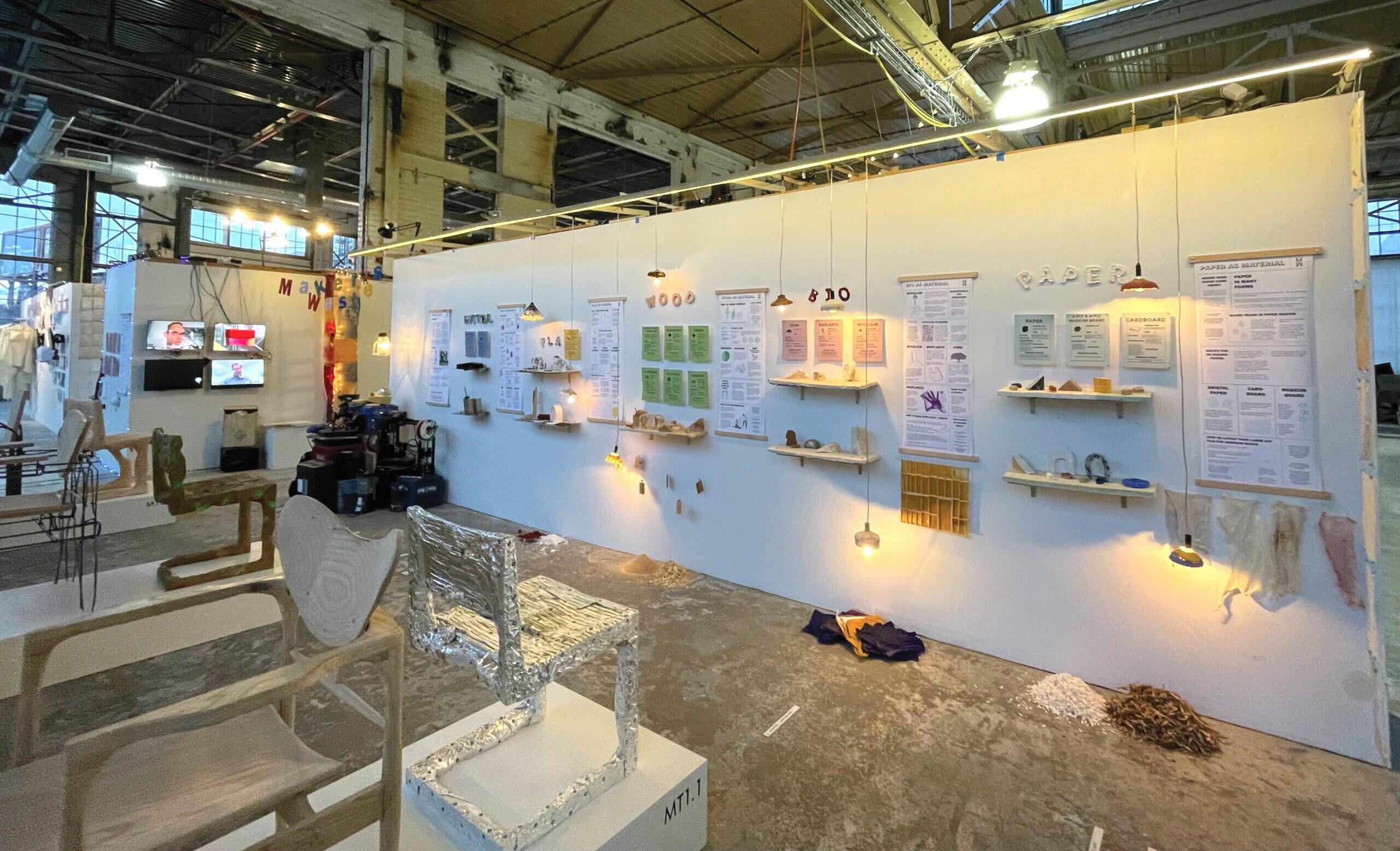Galvanizing the Creative Energy of Taubman College Architecture Students to Help Envision and Shape the Future of Detroit
THE CHALLENGE: Generate Inventive, Inclusive, Sustainable Design Solutions for Housing Sites Across Detroit
The Systems Studio began in 2015 with a series of “What if?” conversations among U-M Architecture Chair Sharon Haar, City of Detroit Planning Director Maurice Cox, and Detroit-based architect and Taubman College Professor of Practice Lars Graebner. With a city-wide renaissance underway, Detroit was undergoing massive, multi-faceted redevelopment, much of it focused on local neighborhoods. To guide prospective developers, Cox and his staff had identified a list of priority sites. Both he and Graebner were eager to involve students in the process of rethinking and revisioning Detroit.
“The Systems Studio addresses a key question: How can we incorporate affordable housing into mixed, market-rate developments within the 139 square miles that comprise Detroit? Students who participate learn not only how to design exquisite buildings, but how to have an impact in their work and how to serve the public interest. There is no better relationship with a college of architecture and urban planning than that of U-M and Detroit.”
— Maurice Cox, Director, City of Detroit Office of Planning and Development
The primary goal was to spark innovation among prospective developers with outside-the-box design approaches that demonstrated how housing could contribute to the social and economic restructuring process of the city, while also contributing to the culture of design. The student concepts are intended to start a discourse of what inclusive housing can look like for future generations of Detroiters, how changing lifestyles can be sustainably integrated in new neighborhood developments, and how innovative development in Detroit can serve as an inspiration for other American cities.
THE RESPONSE: A Design Studio with a Mission
In fall 2016, following intense collaboration and planning, the college re-launched its Systems Studio with a new focus. During this semester-long course, student teams from 10 or more studios develop design proposals for housing sites selected from the Detroit Planning Department master list. Each studio is focused on a specific design challenge such as senior living, multi-generational housing, live-work environments, healthy living, or cooperative housing. The student teams create a comprehensive urban and building strategy for each site, from initial analysis to early-phase design development. Their proposals are then reviewed by internal and external faculty, practicing architects, and representatives from the Detroit Planning and Development Department.
Of the 50 student designs produced in year one of the studio, eight were selected for inclusion in “A City for All: Future Housing Models for the City of Detroit,” a biennial exhibition and panel discussion presented as part of Detroit 139 — a coalition of business, education and nonprofits dedicated to promoting equity, design excellence, and inclusion. Work produced during year two influenced the final design and approach of a proposal by the Detroit-based developer The Platform for a five-acre project that broke ground along the Dequindre Cut in 2018.
THE IMPACT: Profound and Far-Reaching
The Systems Studio exemplifies how a leading university can serve as an idea generator and the means for igniting positive change. The intensity of the course and its real-life implications exert a powerful and wide-ranging impact. Students come away from the experience with solid skills, hard-won confidence, and highly marketable work in their portfolios. Practicing architects, developers, and city planners are inspired to think in new and socially conscious ways and to take fresh and daring approaches to site development.
“This studio is an excellent instance of architecture research and design being driven toward community need. In addition to teaching students the value of research in architectural design, we are demonstrating how their work can impact contemporary rebuilding in a major American city. Our student teams generate pre-design thinking that typically doesn’t happen in spaces like these, and we present multiple ideas for specific individual sites. As a result, this studio is a catalyst for broader, deeper, bolder thinking on the part of practicing architects throughout the City of Detroit.”
— Sharon Haar, Architecture Chair
THE BOTTOM LINE: A Rare Opportunity for Donors
The Systems Studio — which uses academic and research excellence to further real-world projects and which enables students to have an impact on real communities — exemplifies the highest aims of the university. This remarkable course demonstrates the practical value and impact of architectural research, equips students with valuable skill sets, and introduces speculative concepts that can be successfully used to meet the need for inclusive, innovative, affordable urban housing.
The college has committed to continuing, and growing, the program for a minimum period of five years. This will require an infusion of resources for faculty support, site visits, outside experts for project reviews, and educational publications and events.
By investing in this project, donors can assure that our students will be uniquely prepared to make a consequential difference in the world. Every dollar will generate benefits that reach far beyond the campus: into developing neighborhoods across Detroit and, ultimately, into urban areas across the nation.





